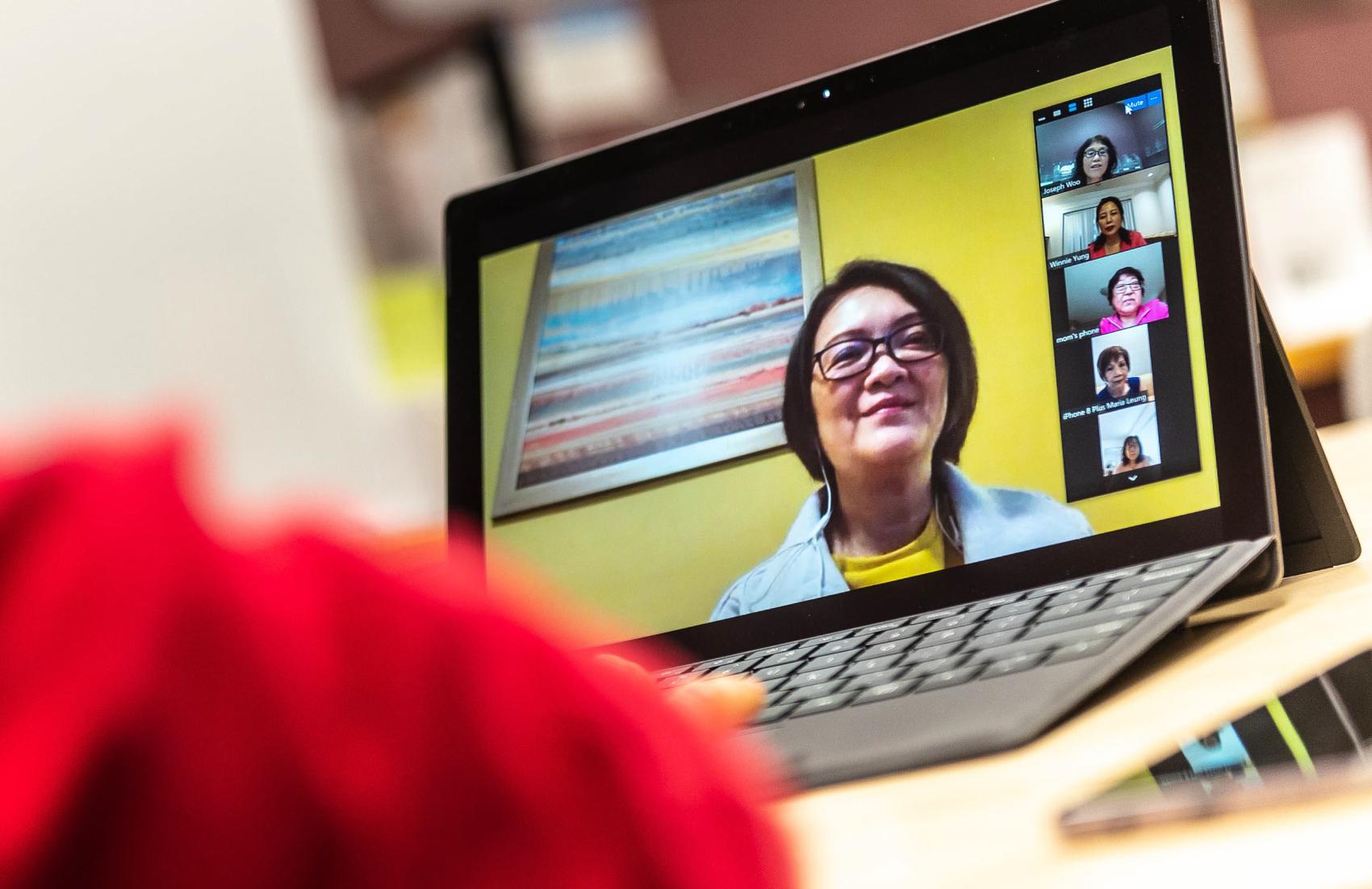Neighbourhood watch: How to help active seniors combat isolation
By Carolyn Ali

Community organizations can help create virtual connection
“This is a time when we need to go back to the age-old wisdom of mobilizing your local community,” says Dr. Roger Wong. A clinical professor of geriatric medicine in UBC’s Faculty of Medicine, Wong says isolation among seniors can be tough to address through organized programs.
That’s because seniors with underlying mental-health conditions such as anxiety, depression or dementia are less likely to reach out to attend community programs on their own. Then there’s the challenge of overcoming the stigma of attending a community program that’s advertised as helping seniors combat loneliness.
So how can we help protect active seniors from isolation?
“The answer goes back to the local community and neighbours.”
DR. Roger Wong, UBC Faculty of Medicine
“The answer goes back to the local community and neighbours,” Wong says. “If they see and sense that someone within the neighbourhood is isolated and lonely, then reaching out through the local network is probably the most helpful.”

That means not just relying on community officials but encouraging individuals and community organizations to step up.
Seniors who are adept at technology, for example, can help by becoming champions for interaction on social media. They can set up virtual social gatherings to help educate their peers who own devices like iPads but may not know how to best use them. They can share their knowledge on how to use apps like Zoom and help facilitate the movement of traditional in-person group activities online.
For seniors who are not so adept at technology, Wong sees a role for service organizations. UBC’s Connecting with Compassion initiative is one example of the kind of help that can be organized; volunteers delivered iPads to long-term care homes across B.C. in order to facilitate virtual visits with family, friends or UBC students and keep seniors engaged.
The non-profit organization Gluu offers free digital skills training for seniors, with self-paced videos and live Q&As to help seniors get comfortable using smartphones and tablets.
The social service organization S.U.C.C.E.S.S. offers an Immigrant Seniors Go Digital program that helps adults 55 and up become comfortable using Zoom, WhatsApp, WeChat and other social networks. Classes are conducted in English with support in Cantonese, Mandarin, Korean or Farsi. S.U.C.C.E.S.S. has also helped participants in other programs go digital: staff members host Zoom social gatherings for a women’s seniors’ group that used to meet in person.
Learn how older adults can embrace new routines
Carolyn Ali is a writer for UBC’s Brand and Marketing. This article was published October 14, 2020.
Feel free to republish the text of this article, but please follow our guidelines for attribution and seek any necessary permissions before doing so. Please note that images are not included in this blanket licence.


